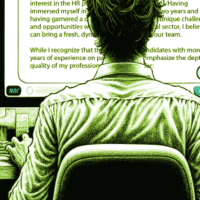
The anti-money laundering (AML) and anti-financial crime professions have been growing at an amazing rate. The tragic events on 9/11, improved money laundering technologies, the Great Recession and increased regulatory scrutiny are just a few of the causes leading to implementation of more robust AML controls in financial institutions. Administering the growth of the controls are hundreds of thousands of dedicated AML professionals—including technology whizzes, advisors, analysts, investigators, lawyers, regulators and law enforcement. As the supply of qualified AML professionals is limited and demand is growing, experts in other fields like law enforcement and law join the financial-crime-fighting industry daily. With the rapid growth, it is inevitable that many industry professionals will earn promotions and take on additional responsibilities. What is also inevitable is that up to 70 percent of successful AML professionals may feel unqualified for their current roles. Seventy percent!
While 70 percent may feel unqualified, that does not mean they are unqualified. This feeling is known by a few names, like imposter phenomenon and fraud syndrome; however, it is most commonly known as imposter syndrome. Imposter syndrome was coined in the 1970s, when psychology professor Pauline Rose Clance heard similar stories from many women that felt the success they had achieved was undeserved. Clance later said if she could do it all over again, she would call it the impostor experience, because it is not a syndrome, complex or mental illness; it is something almost everyone experiences.1
Imposter syndrome causes some people to doubt their achievements, resulting in a fear that others will expose them as the frauds they believe themselves to be. The condition can affect anyone, regardless of career or social status. Imposter syndrome has been studied extensively and to no one’s surprise, financial crime fighters are not immune. Place 100 of the brightest financial crime professionals in a room and up to 70 of those professionals have felt job inadequacy or inferiority at least once in their careers.
“Ironically, the most competent people in a given area are more likely to under-estimate their ability compared to others, whereas those most lacking tend to vastly overestimate, in a psychological phenomenon known as the Dunning-Kruger effect,”2 according to the website Medium. It is critical to understand imposter syndrome cannot be cured by simply telling someone to be more confident. The causes are often deeply rooted, and many cannot be “fixed.”
There are multiple risk factors3 that can lead to imposter syndrome including, but not limited to the following:
- A recent promotion
- Growing up with a gifted sibling
- Being labeled as exceptional in intelligence, appearance or talent as a young child
- Being a high-achieving woman4
- Working remotely5
Psychological causes like low self-esteem, introversion, perfectionism, anxiety, and/or depression have been labeled as both risk factors6 and results of imposter syndrome.7
With literally dozens of risk factors, it is easy to believe 70 out of 100 AML professionals may feel inadequate professionally. Perhaps you are one of the 70.
Types of Imposter Syndrome
Conduct an internet search for “types of imposter syndrome” and thousands of results will populate. Generally, the types of people experiencing imposter syndrome are categorized as follows:8
- Perfectionists, who set ridiculously high standards for themselves and then feel like disappointments when they do not achieve them.
- Natural geniuses, who are similar to perfectionists in setting impossibly high standards; however, they also expect to get everything right on the first try. Natural geniuses feel a very real sense of failure when revisions are required.
- Supermen/women, who push themselves hard and may be misclassified as workaholics. It is the feeling of inadequacy that causes continued work and effort to excel—even when unnecessary.
- Experts, who are employees that believe they somehow tricked their employers into acquiring jobs they have no right to because they never felt truly qualified. In other words, they feel like frauds.
Countering Imposter Syndrome
So, we know what imposter syndrome is, the risk factors and the types—but how do we counter imposter syndrome and limit its effects? With conscious effort and hard work! It is equally critical to address the results of imposter syndrome as it is to identify its cause(s). Countering the effects begins with believing in your self-worth and your right to hold the position. Some may view this as “fake it until you make it”; however, they would be wrong. There is no need to “fake it” because you have “made it.” The critical aspect is believing you have made it on your own merits and not because someone made a mistake. It is important to take opportunities and make opportunities to display your expertise and worth to your organization. Many of the strategies mentioned in the March-May 2017 ACAMS Today article titled Marketability 101: How an AML Professional Can Increase Marketability9 are applicable here and can be read below:
- Learn the basics: If you have been promoted into a role without having worked in the entry-level roles, take the time to learn the entry-level roles. In addition, take time to learn as many supportive processes you can. Knowledge is power.
- Seek out a mentor: Preferably within the industry. With 70 out of 100 people likely to have experienced imposter syndrome, your mentor may have tips and tricks to share.
- Become the “go-to” person: The more that you are asked to share your expertise, knowledge, tools and opinions, the more likely you are to reframe yourself in your own mind as an expert.
- Take your knowledge to the next level: In other words, never stop learning. Do not view your moniker of “subject-matter expert” as a final destination but rather as a challenge to continue to find new things to learn. Credentials are extremely useful in fighting imposter syndrome. Having an external source like the Association of Certified Anti-Money Laundering Specialists (ACAMS) publicly cement your value in the industry with one of their prestigious CAMS designations goes a long way in soothing self-doubt.
- Take on responsibilities within your local ACAMS chapter to cement your place in the industry: Being associated with quality chapter events will heighten your exposure and foster positive feelings about your contributions.
- Find a passion and pursue it with everything you have: There is an inspiring quote by Marc Anthony, “If you do what you love, you’ll never work a day in your life” (a derivation of the original Confucius quote). It follows that if you do not feel as if you are working but rather pursuing a passion, then the feelings of inadequacy will fade and will be replaced with joy.
- Encourage knowledge sharing internal and external to your organization: Intentionally placing yourself in leadership roles will soon replace the thoughts that you were granted one or more roles under false pretenses. Put yourself in a position where you can not only shine but also positively impact others with your efforts. Examples include presenting at work or industry events, authoring articles and becoming a mentor.
In addition to the strategies mentioned in the ACAMS Today article, try the following as well:
- Practice self-compassion. “Self-compassion involves recalibrating your internal voice from one that might be nagging or critical to one that is forgiving and understanding. It is also a great reminder that everyone messes up at some point, and failure isn't the worst thing that can happen. Strengthening self-compassion can reduce the fear of failure and derail self-doubt.”10
- “Take stock of your success. Keep a written inventory of your skills, accomplishments, and experiences to understand your success. Use logic and facts to assuage your fears.”11
- “Learn to internalize external validation. When someone compliments you on a task you did really well, resist your habitual negative response and just let the information sink in. Another way to practice this is to ask a trusted ally what your special gifts are; listen carefully and ‘metabolize’ your friend’s words.”12
- On the other hand, do not over-internalize negative critiques. A criticism of a specific work product or task is not representative of you as an industry professional, it is simply one person’s opinion on one task at one point in time. Dissect the critique objectively without passion and without self-flagellation. If the critique is valid, hunt for the root cause and/or a learning opportunity. Turn the negative into a positive.
- TED Talks are short informational presentations delivered by professionals in various industries on a variety of topics. Search imposter syndrome and listen to the talks. Identify areas where you can help yourself and the methods and tools to do so.13,14
With some underlying causes being psychological in nature, it would be remiss not to suggest individual or group psychotherapy. “The aim of the psychotherapies…is to provide realization to sufferers that no one is perfect and to try to change their feelings. Psychotherapies also assist in recognizing the patient’s expertise.”15
The AML industry is loaded with fantastically knowledgeable and competent professionals; unfortunately, many do not have confidence in their knowledge. Imposter syndrome can be paralyzing and can result in unintended and negative consequences when not identified and addressed. It can lead to increased stress at work and procrastination.16
- “The more subtle and sinister effects of impostor syndrome is before you realize it, yet you’ve already confined yourself inside an invisible box whose edges are defined by impostor syndrome, rather than your abilities. The longer you stay inside that box, the longer you feel what’s outside is not what you’re meant to do, and you never reach for it.”17
Sufferers of imposter syndrome—you are not alone and you need not be helpless or hopeless.
- McLean Thompson, “The effects of Imposter Syndrome (and how to deal with it),” Cutting Edge Recruiting Solutions, February 2, 2017, https://www.cersnow.com/blog/imposter-syndrome-how-to-deal/
- Alicia Liu, “Imposter Syndrome Is Not Just a Confidence Problem,” Medium, July 15, 2014, https://medium.com/counter-intuition/impostor-syndrome-is-not-just-a-confidence-problem-dea670e59f6e
- Jayne Leonard, “How to handle imposter syndrome,” Medical News Today, May 4, 2018, https://www.medicalnewstoday.com/articles/321730.php
- Pauline Rose Clance and Suzanne Imes, “The Imposter Phenomenon in High Achieving Women: Dynamics and Therapeutic Intervention” Pauline Rose Clance, 1978, http://www.paulineroseclance.com/pdf/ip_high_achieving_women.pdf
- Jessica Sillers, “Does Remote Work Increase Our Risk Of Imposter Syndrome?” Trello, October 31, 2017, https://blog.trello.com/does-remote-work-increase-impostor-syndrome-risk
- Denise M. Castro, Rebecca A. Jones & Hamid Mirsalimi, “Parentification and the Imposter Phenomenon: An Empirical Investigation,” The American Journal of Family Therapy, August 17, 2010, https://www.tandfonline.com/doi/abs/10.1080/01926180490425676
- Susan Weinschenk, “The Imposter Syndrome,” Psychology Today, May 25, 2016, https://www.psychologytoday.com/us/blog/brain-wise/201605/the-imposter-syndrome
- Jenny Darmody, “Did you know there’s more than one type of imposter syndrome?” Silicon Republic, July 3, 2018, https://www.siliconrepublic.com/advice/types-of-imposter-syndrome
- Amy Wotapka, “Marketing 101: How an AML Professional can Increase Marketability,” ACAMS Today, March 6, 2017, https://www.acamstoday.org/marketing-101-how-an-aml-professional-can-increase-marketability/
- Leah Weiss, “Self-Compassion Could Be the Secret to Stopping Imposter Syndrome You’ve Been Looking For,” Inc., September 4, 2018, https://www.inc.com/leah-weiss/how-to-overcome-imposter-syndrome-with-self-compassion-according-to-science.html
- Joyce Roche, “10 Ways to Overcome Imposter Syndrome,” The Shriver Report, October 9, 2013, http://shriverreport.org/10-ways-to-overcome-impostor-syndrome-joyce-roche/
- Ibid.
- Elizabeth Cox, “What is imposter syndrome and how can you combat it?” August 2018, TED video, 4:19,https://www.ted.com/talks/elizabeth_cox_what_is_imposter_syndrome_and_how_can_you_combat_it
- Mike Cannon-Brookes, “Imposter Syndrome,” June 6, 2017, TEDxSydney video, 14:08, https://tedxsydney.com/talk/imposter-syndrome-mike-cannon-brookes/
- “What is Imposter Syndrome?” SyndromesPedia, https://syndromespedia.com/imposter-syndrome.html
- Neil Peterson, “The Effects of Imposter Syndrome,” AllPsych, June 20, 2016, https://blog.allpsych.com/the-effects-of-imposter-syndrome/
- Alicia Liu, “Imposter Syndrome Is Not Just a Confidence Problem,” Medium, July 15, 2014, https://medium.com/counter-intuition/impostor-syndrome-is-not-just-a-confidence-problem-dea670e59f6e











Thanks for the excellent article, a very real phenomenon I’m familiar with by experience but personally had never researched or had a name for.
I appreciate the feedback! It’s nice to know when an article has had a positive impact.
Thanks for sharing such an informative article.